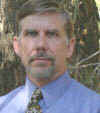|
|
What, if any, responsibility do private owners The Virtual Editorials - E5 (June 5, 2005) - Dennis Foster |
 |
|
|
||
| Introduction: The notion that the government should be a proxy for culture is untenable. The process of investment, noted economist Lester Thurow, is a destructive one - we must tear down the old in order to build up the new. That may unsettle some people, but it is a fact of life. And, I, for one, want to see a future where development continues and living standards are raised. That means respecting private property and not having the city freeze the economic landscape to the benefit of a few. This topic arose from the destruction of two old motels along Route 66, the main road through Flagstaff. Both of these motels were bought up by a neighboring business because they adversely affected their business (a western clothing store and a restaurant). What a great way to deal with the problems of blight! | ||
|
|
||
|
Virtual Editorial #5 |
||
|
|
||
|
None.
Isn’t the market a wonderful thing? A highway comes through
Flagstaff and, magically, motel rooms pop up to satisfy the traveling
public’s demand for temporary lodging. Of course, it isn’t
magic. It takes hard work, time, money and private property
rights. Over two centuries ago, Adam Smith described this
process as “the invisible hand.” There is no need for
government coordination – the marketplace will respond and it will
do so in an efficient manner.
Life is a dynamic process. Times change.
The highest valued use for the land along Route 66 has shifted.
And, the market reacts. Old motels get torn down. Maybe
the land is just used as a vacant lot, but that probably won’t last
long – there are likely to be other, more highly valued, uses to
which the land can, and will, be put.
It is possible that the highest valued use of some land is to preserve
an old motel building. How can that happen? Well, you can
form a business (non-profit or not), solicit for funds, buy the motel
and spend money to fix it up and transform it into … well, whatever
you want. A museum. Gift shops. Professional
offices. Restaurants. Or, even, motel rooms! |
||
|
|
||
| Afterword: I am often struck by how difficult it is to get some people to recognize the benefits that follow from the dynamic nature of life. After all, we could still be running around in loincloths, chasing rabbits and hoping that we won't starve during the next winter. And, markets are a perfect reflection of that dynamism, as we constantly seek out new arrangements of resources to benefit us. If this idea interest you further, I would highly recommend Virginia Postrel's book, The Future and Its Enemies. | ||
|
|
||
